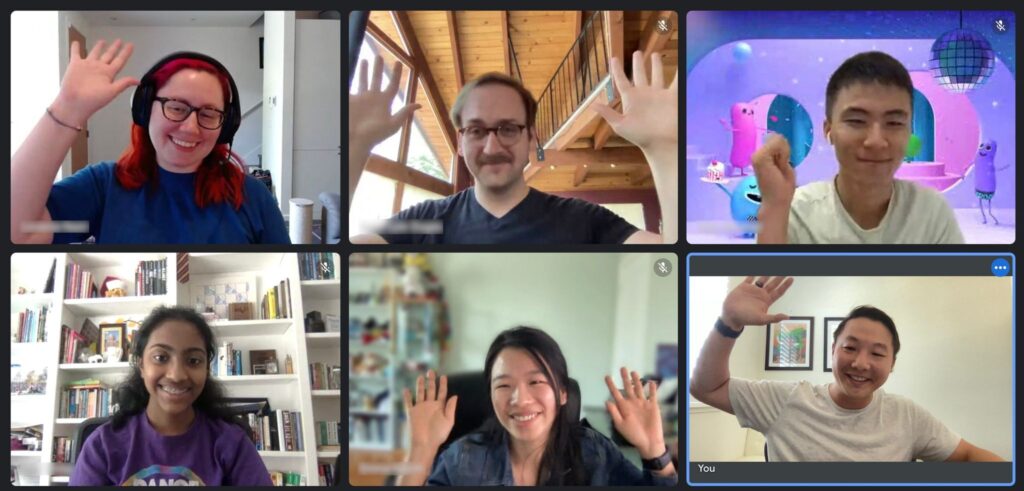Be the first to know
Sign up for a weekly dose of tech hiring news and updates.
How can engineering managers empower their teams and give them the space to try, struggle, grow, and succeed?
Meet Jeffrey Yang, CTO at Rising Team, a platform that helps managers lead healthy, happy, and connected teams. Before joining Rising Team, Jeff worked at Facebook where he built and led several engineering teams.
Read on to learn more about Jeff’s inspiring story and the five valuable engineering leadership tips he lives by.
Jeffrey’s Story
Growing up Jeff was bullied and it led to him giving up on taking ownership of his life. Instead, he did as he was told and only what he was told. He became what he calls an “anti-hustler”. As a result, for the first decade of his career, he never received a single promotion, even though he was an excellent programmer.
Then, a conversation with his manager changed his life.
“One day, shortly after joining his team, my manager pulled me aside. ‘You have to stop asking me for permission,’ he said. ‘I’ve been paying attention to you. You already know what to do; just do it. I trust you. I want you to lead this team’,” Jeff recalls.
It was then that Jeff realized that true ownership means being responsible for your decisions and taking accountability for the results. That’s when his career took off.

“I will always be grateful for how my manager empowered me, gave me the opportunities and space to struggle, and trusted me to succeed,” says Jeff.
We had the pleasure of speaking with Jeff to learn more about his journey and are excited to share his engineering leadership tips with you:
Jeffrey Yang’s Engineering Leadership Tips
Tip #1 Challenge your Assumptions
When we feel stuck, it often seems like we have limited options and that they’re all terrible. Get out of that mode.
Take time to brainstorm and challenge your assumptions. You’ll be surprised at what’s possible when you throw out your beliefs about your situation and about other people.
Share this technique with your team. Sit down with a problem you are stuck on and write down all the reasons you can’t achieve your goal. Then for each item on your list, see if you can falsify it. Why might your assertion be incorrect? Or what scenarios and actions would make it no longer true? Encourage your team to believe in themselves and to explore and develop new solutions.
You might also like: Three Traits of an Exceptional Engineering Leader
Tip #2 Practice Ownership and Empowerment
Technical leaders must guide and encourage their team to take responsibility for situations and the team. Simultaneously, they should empower each individual to help them build a fulfilling career.
Here’s a common scenario: A project depends on the work of one person who committed to finishing it but didn’t. And now your team can’t meet the deadline.
Possible responses:
- Lack of ownership: “I did my part, but they didn’t do what they committed to.”
- Taking on others’ burdens: “Let me do it. Why do I always have to save the team?”
- Ownership of the situation: “We didn’t meet our deadline. That’s okay. Let’s get a clearer picture of the situation and see how we can get this done.”
- Ownership of the team: “What happened is understandable, and we don’t blame anyone. As a team, we strive to improve and grow. Let’s see what we can do better moving forward.”
Use the last two examples as a guide for exercising ownership. Practice first with yourself, then with others. An excellent resource is Extreme Ownership by Jocko Willink.
Also, practice empowering others. You can’t do all the work and you need others to help you – even if they aren’t good at it yet. Empower your engineers: put your trust in them, and give them the space to try, struggle and grow.

Tip #3 Be Nice to Yourself
Practice letting go of things that aren’t important – not everything needs to get done now or be perfect, and not everything needs your attention.
Leading is challenging, and there will always be times when you struggle or even fail. Permit yourself to fail, be nice to yourself, own your mistakes, and figure out how to improve.
Tip #4 Focus on the 3 Cs: Coach, Clarify, and Connect
Rising Team builds its system on a philosophy based on science and research, what they call the 3 C’s:
- Coach: understand each team member and unleash their potential
- Clarify: formulate a clear vision and plan to achieve great results
- Connect: transform the team into a cohesive unit by creating an environment of trust, safety, and support
Remember that you don’t have to get it right immediately if this feels overwhelming. Instead, focus on small and consistent improvements over time and seek support in the format that works best for you. There are books, podcasts, leadership courses, 1:1 coaching, and, of course, the Rising Team product.
Extra reading: Five Ways to Rock Engineering Management
Tip #5 Create a Team, Not a Collection of Individuals
A connected team that supports each other is going to be much more effective than a group of individuals who happen to work together. Yet, many people feel disconnected from their teams, and remote work has magnified this. In theory, team building should help teams work better together and be more connected. But unfortunately, they’re often not as effective as hoped, especially in a remote setting.
Jeff believes that effective team building requires a shared purpose to bond together over and an activity that is interesting and valuable for each person on the team. Applied consistently, this type of team building will create a highly performant and resilient team. This is the concept behind the Rising Team product.
Has Jeff’s story and engineering leadership tips inspired you to be a better leader? For more like this, visit our Knowledge Hub for the latest research, professional development resources, and advice for hiring software engineers.
